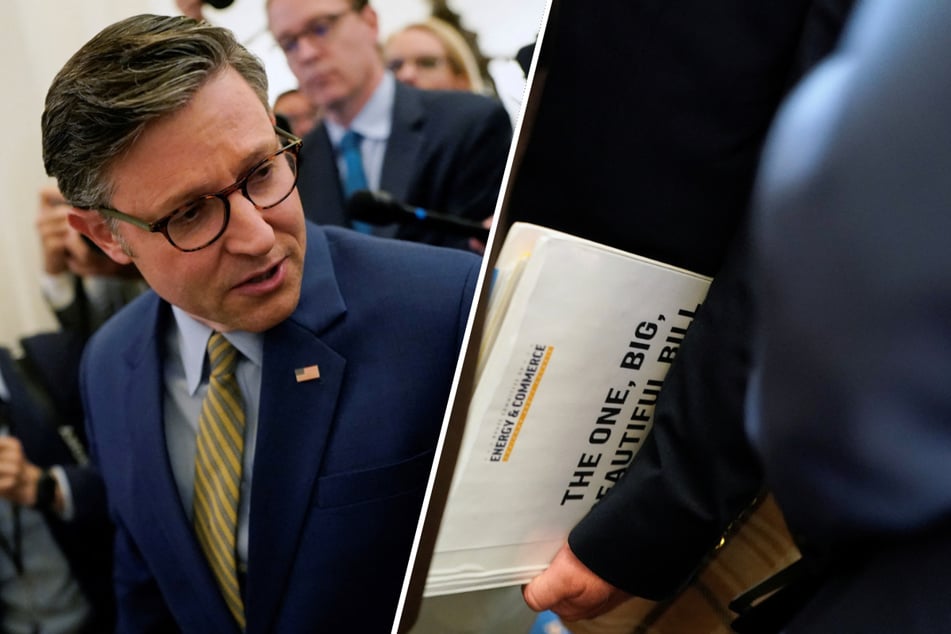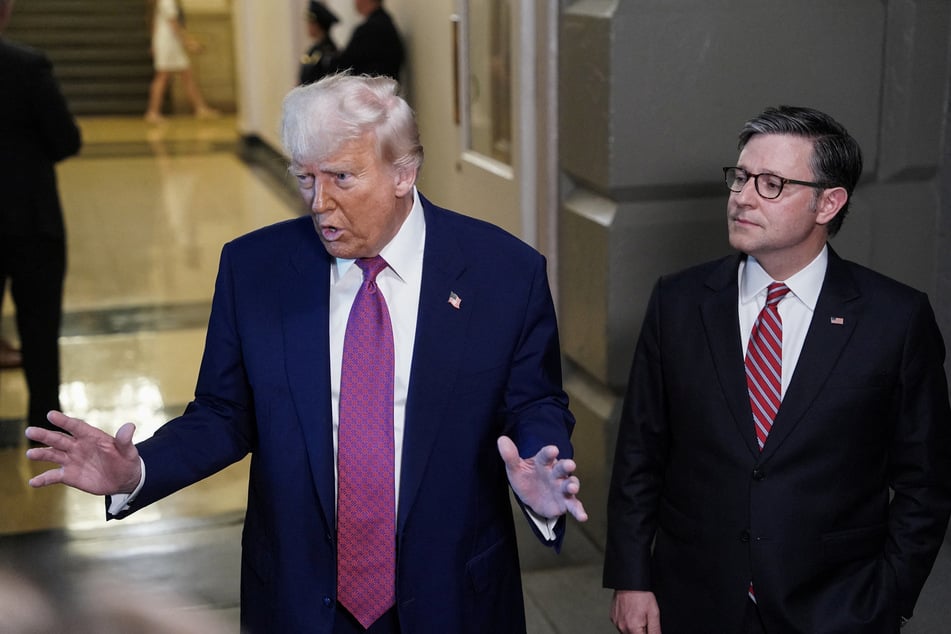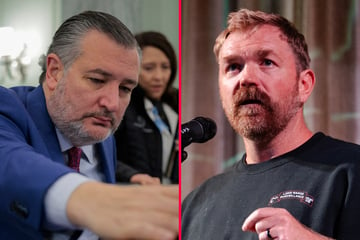House passes "Big Beautiful Bill" slashing Medicaid and food stamps to pay for Trump tax cuts
Washington DC - The US House of Representatives voted Thursday to approve President Donald Trump's sprawling budget mega-bill that critics warn would decimate health care while ballooning the debt.

The One Big, Beautiful Bill Act – which now moves to the Senate – would massively shrink social safety net programs to pay for a 10-year extension of his 2017 tax cuts, which mainly favor wealthy Americans.
"Legislation of this magnitude is truly nation shaping and life changing," said House Speaker Mike Johnson ahead of the largely party-line vote, which capped a marathon debate that went through the night.
"It's the kind of transformational change that future generations will study one day. They'll look back at this day as a turning point in American history."
The mammoth package passed along party lines – 215 votes to 214 – after Trump long with Republican leadership quelled a rebellion on the party's right flank, who wanted even more savage cuts.
To appease them, Johnson moved up the enforcement of work requirements for Medicaid recipients by two years to the end of 2026 and agreed to phase out clean energy tax credits earlier.
The centerpiece of Trump's domestic policy agenda that define his second term in the White House, and he took to social media to celebrate its success.
"'THE ONE, BIG, BEAUTIFUL BILL' has PASSED the House of Representatives!" Trump posted. "This is arguably the most significant piece of Legislation that will ever be signed in the History of our Country!"
Windfall for richest 10%, cuts for millions of Medicaid recipients

The nonpartisan Congressional Budget Office (CBO) predicted the bill would boost the incomes of the richest 10% while making the bottom 10% poorer, through hundreds of billions of dollars in cuts to health care and food stamps.
The White House Council of Economic Advisors has made hugely ambitious projections, well outside the mainstream consensus, that the package will spur growth of up to 5.2%.
And Trump's press secretary Karoline Leavitt claimed the bill "does not add to the deficit," and would actually save $1.6 trillion through spending cuts.
But investors were unconvinced as the yield on the 10-year US Treasury note surged to its highest level since February on Wednesday, amid worries over the budget-busting bill's bottom line adding to the $36 trillion US debt burden.
Democrats called the bill "devastating" for the middle class, pointing to CBO estimates that its cuts to public health insurance for low-income Americans would deprive 8.6 million people of coverage – despite repeated promises by Trump that Medicaid access would remain unaffected.
House Minority Leader Hakeem Jeffries called the bill "the largest cut to health care in American history... in order to enact the largest tax breaks for billionaires in American history."
The bill is likely to undergo at least a month of significant rewrites in the Senate, which plans to get the package to Trump's desk by July 4.
Cover photo: Collage: REUTERS

